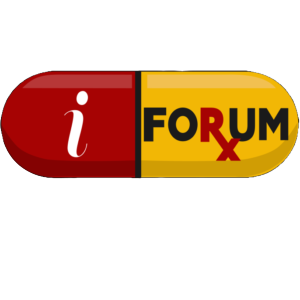Episodes
Saturday Jun 10, 2017
Saturday Jun 10, 2017
For the acute treatment of venous thromboembolism, the direct oral anticoagulants (DOACs) have increasingly replaced injectable anticoagulant therapy followed by warfarin. For patients with an unprovoked deep vein thrombosis or pulmonary embolism who may benefit from long-term extended prophylaxis for the secondary prevention of VTE, the choice is less clear. Should a DOAC be used? If so, which one and what's the best dose? What about low-dose aspirin? Is extended therapy needed at all? The EINSTEIN CHOICE study adds important new insights to the growing body of literature.
Guest Author: Sarah Anderson, PharmD, BCPS
Theme music by Good Talk
Friday Mar 24, 2017
Friday Mar 24, 2017
Many patients with atrial fibrillation (AF) received triple antithrombotic therapy after undergoing a percutaneous coronary intervention (PCI) and receiving cardiac stent. Triple therapy consists of warfarin plus dual antiplatelet therapy (DAPT) with a P2Y12 inhibitor and low-dose aspirin. But is triple therapy the best approach? This practice, while widely employed, is not entirely evidence-based. Moreover, the effectiveness and safety of the direct oral anticoagulants (DOACs) in this patient population is unknown.
Theme Music by Good Talk
Friday Mar 25, 2016
Crossing the Periprocedural Bridge in Patients with Atrial Fibrillation
Friday Mar 25, 2016
Friday Mar 25, 2016
For over two decades LMWHs have been routinely used to provide therapeutic coverage in patients who must temporarily stop warfarin. Current guidelines suggest using injectable anticoagulants during warfarin interruption (aka bridging) in patients with atrial fibrillation based on patients’ risk of arterial thrombosis. Using the CHADS2 score to assess risk, the guidelines recommend (grade 2C) bridge therapy if the CHADS2 score is 5 or higher and not bridging if the CHADS2 score is 2 or lower. But what about patients with a CHADS2 score of 3 or 4?
Friday Oct 16, 2015
How Long Is Long Enough? Extending OAC After Unprovoked PE
Friday Oct 16, 2015
Friday Oct 16, 2015
The recommended treatment duration for a first episode of unprovoked venous thromboembolism (VTE) is, at a minimum, 3 months with extended anticoagulation favored for those who are not at high risk for bleeding. However, the optimal duration of anticoagulation therapy remains unknown. The Prolonged Anticoagulation Treatment for a First Episode of Idiopathic Pulmonary Embolism (PADIS-PE) study examines this question but, most importantly, provides insights about patient outcomes after anticoagulation treatment is discontinued
Friday Sep 18, 2015
Managing Direct Oral Anticoagulants – What’s Our Role?
Friday Sep 18, 2015
Friday Sep 18, 2015
Many clinicians are questioning the role pharmacists play in anticoagulation therapy management as direct oral anticoagulants (DOACs) increasingly replace warfarin for a variety of indications. A recent study examined medication adherence and therapy management practices at Veterans Health Administration (VHA) patient care sites. Although this study does not have all the answers, it does reveal the importance of patient selection and ongoing patient monitoring – potentially key roles for pharmacists.
Friday Apr 24, 2015
Anticoagulation Bridge Therapy - Risks and Benefits Examined
Friday Apr 24, 2015
Friday Apr 24, 2015
The ORBIT-AF study raises questions about anticoagulation therapy bridging practices. Do the risks outweigh the benefits?

